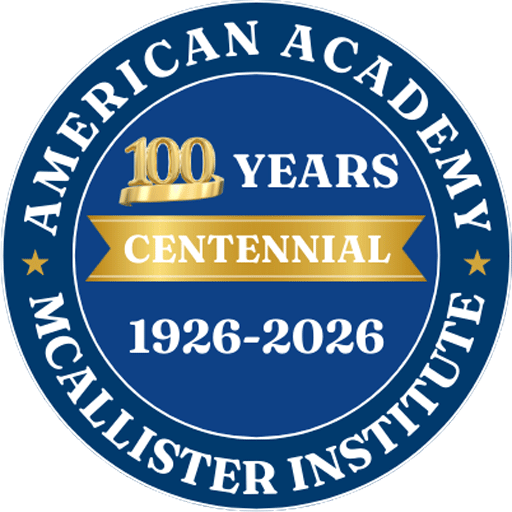
Ethics are the foundation of compassion, skill, and value in the field of funeral service, as both a trade and a necessary public service. Funeral service providers are responsible for maintaining personal, legal, and religious ethics to guarantee the best possible care for the deceased and their surviving family during one of their most emotionally vulnerable life events. This requires a solid ethical foundation in funeral service education to safeguard the future reputation of the field as well as protect its practitioners and clients from unnecessary grief.
This article details the role of ethics in funeral service education, and how accredited institutions instill the foundations of ethical conduct that shape the future of this necessary, rewarding, and compassionate profession.
Why Ethics Matters in Funeral Service
By engaging funeral services, families are entrusting their lost loved one’s care to the professionals who are educated, licensed, and trained to administer that care. For the profession to be healthy, growing, and respected, families must continue to be able to trust that the last wishes of their loved one will be respected, that their remains will be treated with dignity, and that the guidance they receive through these trying times will be compassionate and professional.
This is a process that requires transparency, trust, and respect, the cornerstones of funeral service. Any lapse in ethics can cause lasting emotional harm to the family, ruin the career of the funeral service professional, and damage the reputation of the profession.
Ethical Topics Covered in Funeral Service Education
Funeral service education deals with many topics to prepare students for the ethical and compassionate performance of their professional duties, including:
- Ethical treatment of the deceased, including dignified preparation, restorative art, and last wishes
- Confidentiality and privacy with family and loved ones
- Transparent communication concerning pricing, services, timelines, and legal requirements
- Respect for the widespread cultural and religious traditions of the clients
- Boundaries surrounding conduct, including legal disclosures and professional courtesies
- Compliance with consumer protection laws, including the FTC Funeral Rule
The Funeral Rule and Legal Ethics

The Federal Trade Commission’s (FTC) Funeral Rule intersects ethics and law to advocate for the rights of the family of the deceased as consumers in an emotionally vulnerable situation. The essence of the Funeral Rule is that funeral services professionals must remain honest and transparent with their clients, which includes providing accurate pricing itemized by specific services.
In addition to honest pricing, the rule prohibits deceptive sales tactics, such as emotional manipulation or misrepresentation of services. This includes enforcing a rule that prevents funeral service professionals from requiring services that are not mandated by law.
How Ethical Education Builds Professional Trust
In addition to maintaining compliance, ethics is a foundation for how funeral service professionals build trust with their clients and within their communities. Ethical reasoning is a core component of national board exams and licensing in funeral services education, helping future professionals handle emotional, legal, and business challenges in an ethical manner.
Employers in funeral service businesses trust their recent graduates to be ethically trained in handling complex customer relationships and maintaining the public image of their business, so this foundation is a must.
Ethics and Career Longevity
An ethical reputation is much more than a legal responsibility for funeral service workers. Maintaining an ethical reputation leads to career growth by prompting referrals, spreading good word of mouth, and establishing long-term client relationships.
As ethical conduct can establish this relationship, ethical lapses can result in the opposite: revoked licenses, client lawsuits, or business closures. Mortuary science programs instill ethical values to protect not only vulnerable clients but also the professionals whose businesses rely on consistent professional conduct and good public relations.
Ethics at AAMI

AAMI is committed to ethical training in its funeral service graduates, and in being so, provides ethical training in every aspect of its educational programs. From case studies and psychology coursework to business management courses and scientific study, both the professional and moral responsibilities of funeral service are always kept in clear view.
The funeral service education programs at AAMI are customizable for the needs of each student without losing the real-world ethical context that prepares graduates for their professional responsibilities. Online and on-campus programs are available with real-world training to prepare students for their licensures and for their moral, as well as logistical, duties.
AAMI Turns Career Changers into Funeral Service Professionals
At AAMI, we recognize the need for clear career pathways and the desire for more meaningful work in many of today’s career changers. Our premium, career-focused education programs, both online and on-campus, provide stable career outcomes in the growing field of funeral service while maintaining the ethical training required to conduct the field professionally, maintain its reputation, and respond with compassion to the people who are at the most vulnerable points in their lives.
Create an application or contact our team to learn more about funeral services education as a new career or a mid-career change, including the ethics of the job and how the right institution can help you be successful in this multifaceted, compassionate, and rewarding field.
Contact Us
"*" indicates required fields
